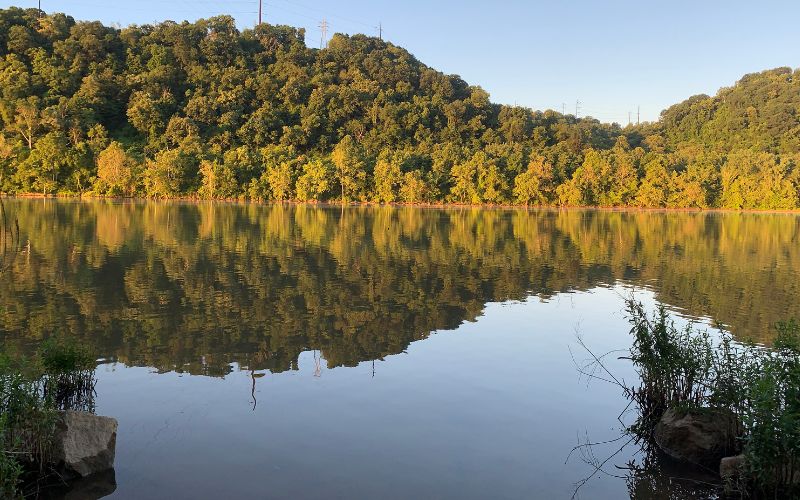
- Details
- By Native News Online Staff
The Seneca Nation of western New York is considering legal action against a municipal government after its city’s wastewater treatment plant overflowed into the Nation’s waterways for the second time this year, according to a memo from the Tribe.
Last week, the tribe reported that approximately 200,000 gallons of untreated sewage from the City of Olean Wastewater Treatment Plant about 20 miles east of one of the Tribe’s two reservations leaked into the Allegheny River over the course of four hours. Another 80,000 gallons of untreated sewage were released into two of the river’s tributaries by the wastewater treatment plant’s pump stations, the Tribe added.
“The dangerous overflows of harmful, untreated sewage from the Olean Wastewater Treatment Plant into the Allegheny River are not rare occurrences. They are, unfortunately, dangerously common,” said Seneca Nation President Rickey Armstrong Senior in a statement. “The Seneca people are outraged, as I am, that we are forced to continue to deal with this situation. We call the river Ohi:yo’, a word that means ‘beautiful river’ in our language. How much longer will our river be beautiful while it is subjected to the ongoing impacts of these dangerous sewage discharges?”
On April 3, the same plant reported two overflows of a collective 186,000 gallons of untreated sewage discharged into the river. The following month, The Seneca Nation issued swimming advisories for the Allegheny River for elevated levels of enterococci—which are indicators of fecal material in water— and E. Coli.
President Armstrong said he is directing the Seneca Nation’s legal department to explore potential legal action; In 2022, the Tribe sent a notice of intent to initiate civil action against the city for violating the Clean Water Act by discharging an excess of pollutants in the river.
In 2001, the New York State Department of Environmental Conservation required the city to upgrade its wastewater treatment facilities to prevent discharges into the river, but the city has requested extensions and currently has through 2042 to be fully compliant with the order.
More Stories Like This
Gwich'in Tribal Governments Submit Comments Challenging Fish and Wildlife Service's Inadequate Environmental Review of Arctic Refuge Snow RoadRappahannock Tribe Challenges 9M-Gallon Water Plan
Feds release draft long-term plans for Colorado River management
Apache Leader Walks 60 Miles to Court Hearing That Will Decide Fate of Sacred Oak Flat
Rappahannock Tribe Raises Sovereignty and Environmental Concerns Over Caroline County Water Permit
Help us defend tribal sovereignty.
At Native News Online, our mission is rooted in telling the stories that strengthen sovereignty and uplift Indigenous voices — not just at year’s end, but every single day.
Because of your generosity last year, we were able to keep our reporters on the ground in tribal communities, at national gatherings and in the halls of Congress — covering the issues that matter most to Indian Country: sovereignty, culture, education, health and economic opportunity.
That support sustained us through a tough year in 2025. Now, as we look to the year ahead, we need your help right now to ensure warrior journalism remains strong — reporting that defends tribal sovereignty, amplifies Native truth, and holds power accountable.
 The stakes couldn't be higher. Your support keeps Native voices heard, Native stories told and Native sovereignty defended.
The stakes couldn't be higher. Your support keeps Native voices heard, Native stories told and Native sovereignty defended.
Stand with Warrior Journalism today.
Levi Rickert (Potawatomi), Editor & Publisher

